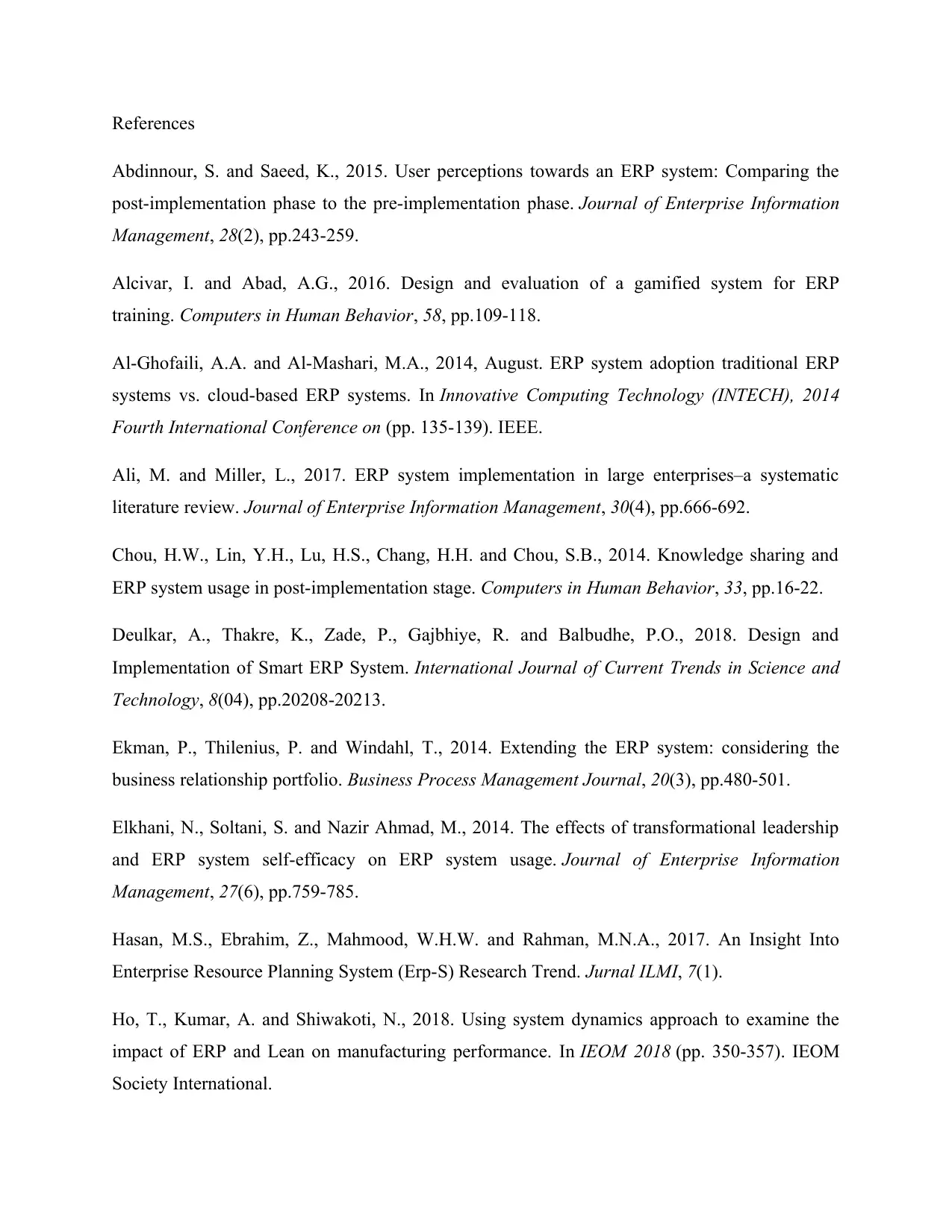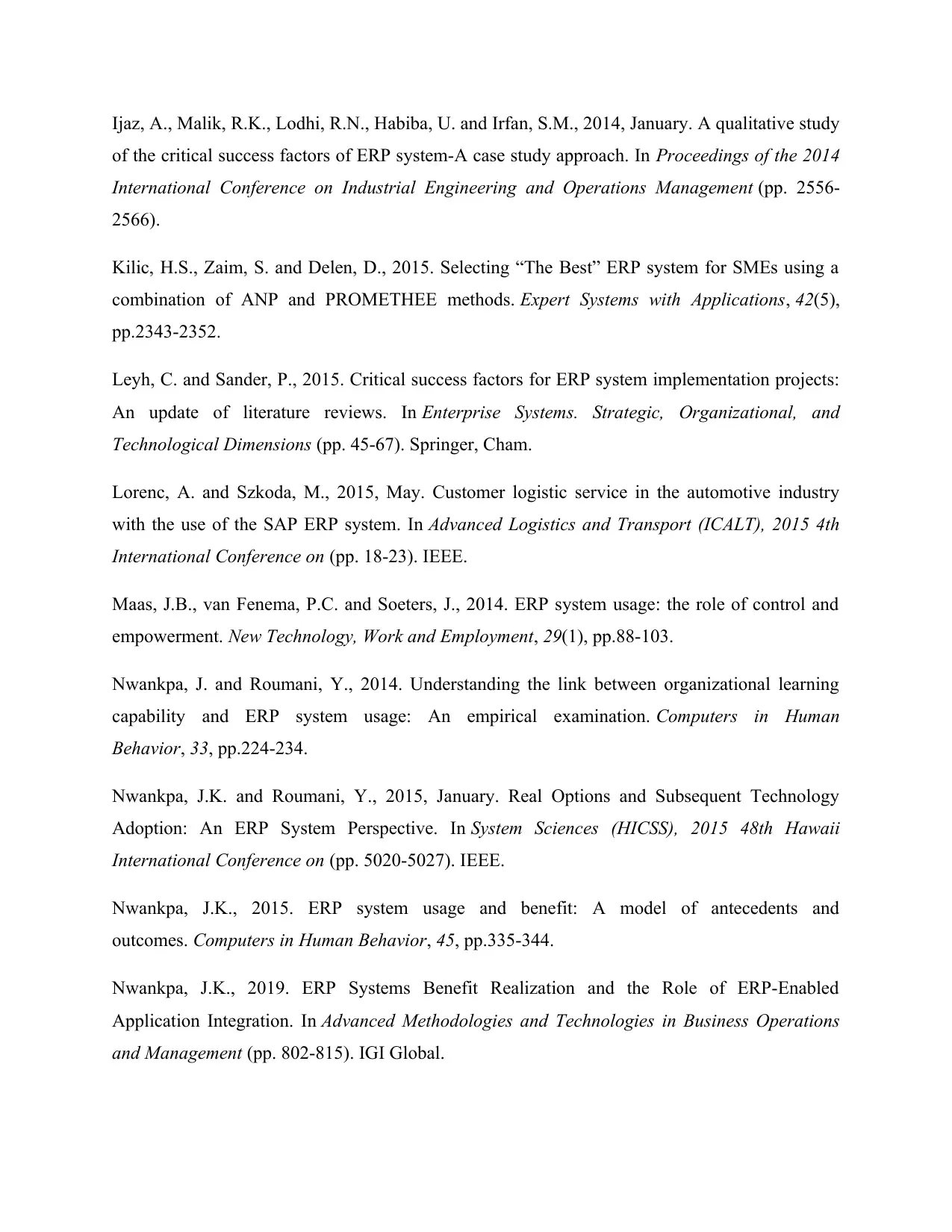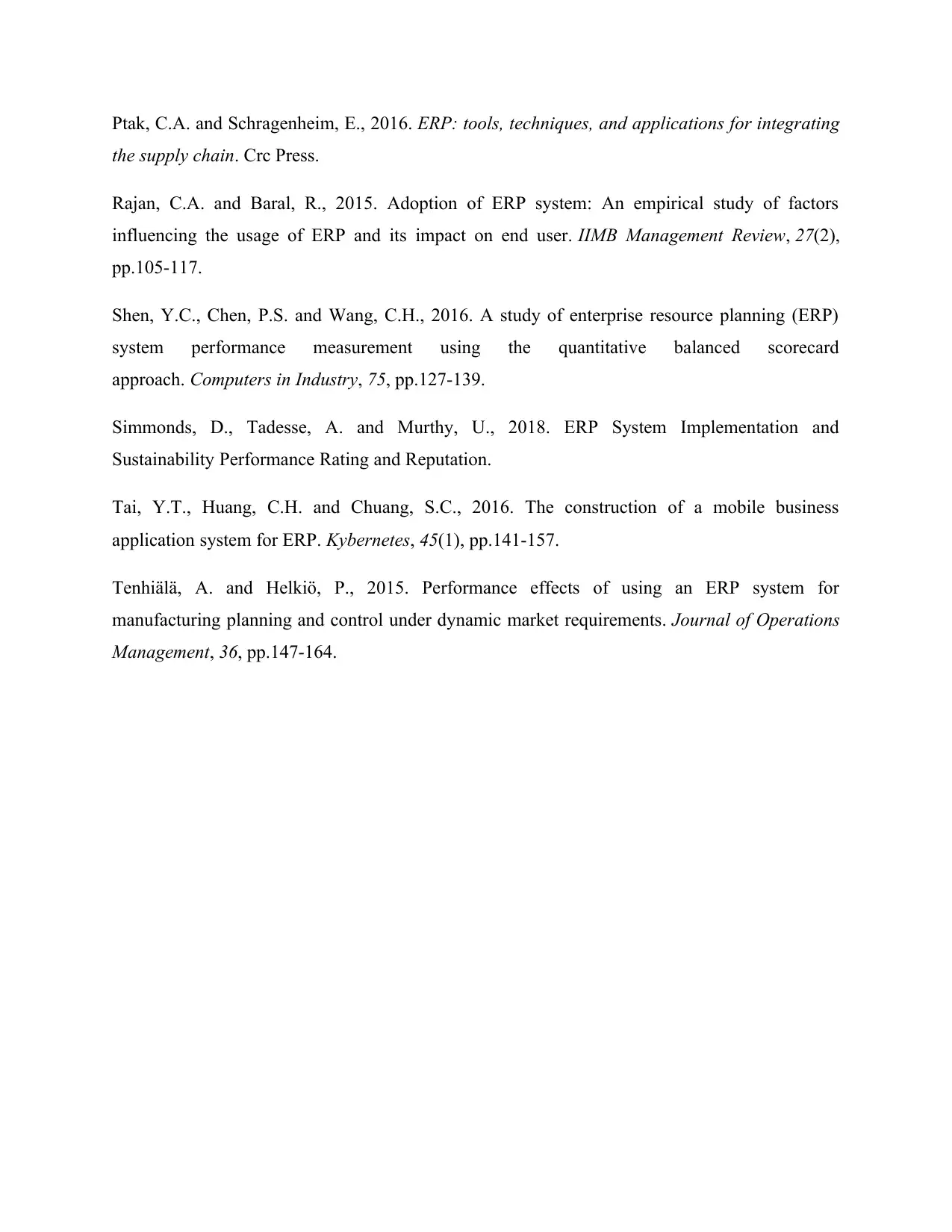ERP System: A Comprehensive Review of Literature
VerifiedAdded on 2023/05/30
|3
|991
|167
AI Summary
This article provides a comprehensive review of literature on ERP system, including adoption, implementation, usage, and performance measurement. The article covers various studies on ERP system, such as user perceptions, gamified system for training, cloud-based ERP systems, transformational leadership, critical success factors, and real options. The article also discusses the role of ERP system in supply chain integration, manufacturing planning and control, and sustainability performance rating and reputation.
Contribute Materials
Your contribution can guide someone’s learning journey. Share your
documents today.
1 out of 3









![[object Object]](/_next/static/media/star-bottom.7253800d.svg)